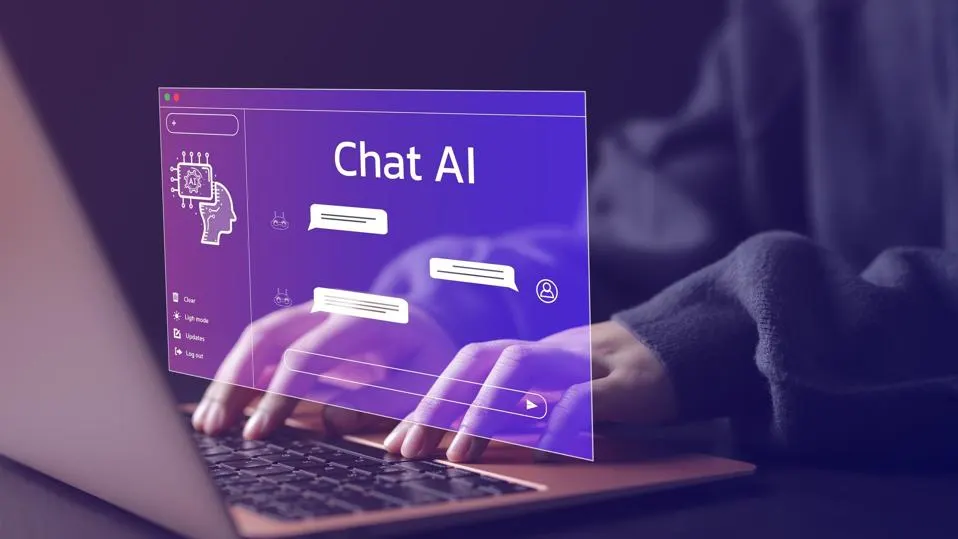How Bumble Bee Foods And SAP Use Blockchain Technology To Track Fresh Fish From Ocean To Table
2 July 2021
Shoppers buying Bumble Bee branded tuna later this year will be able to take advantage of blockchain technology to ensure the fish they are buying is fresh and from a sustainable source.

As over-fishing and the knock-on effects it can have on ocean ecosystems becomes an increasing problem worldwide, consumers are growing more cautious than ever about where their food is coming from.
Blockchain – the technology made famous by cryptocurrency Bitcoin but with potential to be used anywhere where ledgers are used in a supply chain – has been suggested as a possible solution to this problem.
Now one of the largest producers of seafood has partnered with SAP to put this solution in the hands of consumers, who will be able to scan packaging in stores to be reassured that their produce reaches the standards they expect.
Packs of Natural Blue by Anova fair trade yellowfin tuna steaks in retailers including Albertsons, Hy-Vee, Price Chopper and Safeway from this summer will be stamped with the blockchain-derived QR codes.
Bumble Bee CIO Tony Costa told me “We’ve put ensuring sustainability at the forefront of everything we do for a long time, but this lets us take it a step further.
“Because we can trace the movement of fish from the moment it’s caught to the point where it is sold; our customers can have confidence that we’re making a difference to delicate ecosystems as well as the lives of everyone involved in our supply chain.”
A blockchain is a powerful tool when it comes to supply chain integrity due to its use of encryption and distributed computing technology to build a ledger system that comes very close to being tamper-proof.
Workers right along the supply chain – from the fishermen who take the fish from the sea to the packagers, transporters, distributors and retailers – can record details of the quality, size, and condition of the product as it passes through their hands. However, no single link in the supply chain can alter any information other than that which they are directly responsible for.
As everything is backed by encryption, the consumer scanning the barcode can tell that it hasn’t been tampered with at any point, and the fish they’re taking home to eat was genuinely caught at the time and location indicated by the entry on the blockchain made by the fishers.
As well as increased consumer confidence, it’s believed that technology of this sort will also lead to increased profits and revenues for businesses which adopt it, as it drives efficiency along a supply chain and even reduces the need for product recalls when errors are found to have been made with record keeping.
It also verifies data relating to the fish’s status as a fair-trade product, ensuring that workers have been fairly paid for the part they’ve played, and the supply chain is free of exploitation and slave or child labor.
The partnership is the first application of SAP’s blockchain technology in the food industry, but other major players have begun making steps, including Walmart.
The biggest food retailer in the UK announced last year that it is working with IBM on a blockchain solution to be rolled out across its leafy greens operations, with the aim of reducing contamination and the illness that it can cause.
There have been some claims that, as with its most famous use case, Bitcoin, some people have fallen under the hype spell surrounding new and to some extent unproven technology. One study released last year claimed that despite growing investment there was little evidence that corporate blockchains had generated a great deal of change or growth within organizations.
Costa believes that while there has been a certain amount of unwarranted hype regarding its potential, in the right circumstances it can have the power to be truly transformational. Like other transformative technology such as AI and big data, “It’s all about finding the right use cases,” he tells me.
One challenge revolves around the large amount of CPU power required to run the encryption and decryption algorithms that blockchain-based systems rely on to keep their data secure.
Another lies in the fact that despite their ability to keep data highly secure once it has been recorded, it doesn’t actually do anything to verify data quality at the point of input. To put it simply, ensuring users don’t simply lie when they enter data at their point in the supply chain is still down to old fashioned security checks and measures at the organization where the data is entered, and therefore open to gaming by the unscrupulous.
There’s certainly a danger that a lack of understanding of this could lead to an element of “blind faith” on the part of the public when they are told that a blockchain secures their data.
However, this is the case with any data entry – and blockchain certainly doesn’t exacerbate the problem. In the long term, when organizations start to reap the bottom-line benefits such as improved quality of product, and reduction of waste, it may well prove to be the solution to some pressing environmental and business problems.
Related Articles
5 Generative AI Chatbots Everyone Should Know About
Generative AI chatbots have rapidly become indispensable tools across various industries, transforming the way we interact with technology.[...]
AI Revolutionizes Voice Interaction: The Dawn Of A New Era In Technology
It’s becoming increasingly common to find ourselves controlling and communicating with machines using our voices.[...]
7 Ways Marketers Should Be Using Generative AI Now
Marketing is all about engaging customers with compelling content – delivering thoughtful, inspiring messages that help to create a deeper relationship with the brand.[...]
The AI Revolution In Wine Fraud Detection
In an era where authenticity is as valuable as the vintage itself, the wine industry faces a pressing challenge: wine fraud.[...]
10 Mind-Blowing Generative AI Stats Everyone Should Know About
A little over a year ago, no one was talking about generative AI. Now, it’s the dominant topic of top-level events like CES and the World Economic Forum.[...]
How Generative AI Is Revolutionizing Customer Service
Customer service is proving to be one of the most popular applications of generative AI. But how exactly can generative AI aid customer service teams (without alienating customers)?[...]
Sign up to Stay in Touch!
Bernard Marr is a world-renowned futurist, influencer and thought leader in the fields of business and technology, with a passion for using technology for the good of humanity.
He is a best-selling author of over 20 books, writes a regular column for Forbes and advises and coaches many of the world’s best-known organisations.
He has a combined following of 4 million people across his social media channels and newsletters and was ranked by LinkedIn as one of the top 5 business influencers in the world.
Bernard’s latest book is ‘Generative AI in Practice’.










Social Media